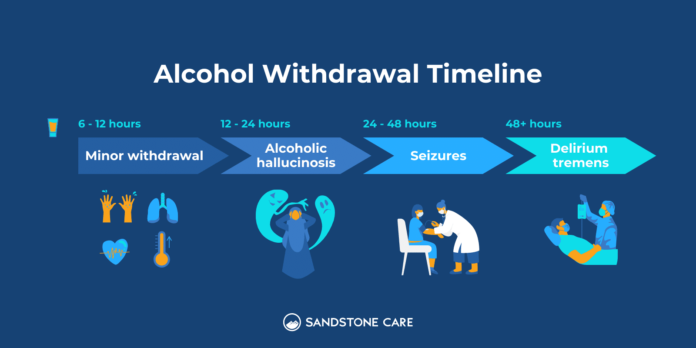Last Updated on March 12, 2024 by admin
Alcohol detoxification, often referred to as alcohol detox, is a crucial step towards recovery for individuals grappling with alcohol addiction. This process involves the cessation of alcohol consumption coupled with medical supervision and support to manage withdrawal symptoms. Understanding the intricacies and significance of alcohol detox can shed light on its importance in the journey towards sobriety.
Table of Contents
The Need for Alcohol Detox
1. Understanding Alcohol Dependency
Alcohol dependence develops when the body becomes accustomed to regular alcohol consumption. Abruptly stopping alcohol intake can trigger a range of withdrawal symptoms, varying from mild to severe, depending on the individual’s history of alcohol use.
2. Potential Withdrawal Symptoms
Withdrawal symptoms from alcohol can include tremors, anxiety, nausea, hallucinations, seizures, and in severe cases, delirium tremens (DTs). These symptoms can be physically and psychologically distressing, making professional assistance crucial to manage the process safely.
The Process of Alcohol Detox
1. Medical Evaluation
The first step in alcohol detox involves a comprehensive medical assessment by healthcare professionals. This evaluation determines the individual’s physical and mental health status, which guides the detox process and helps anticipate potential complications.
2. Supervised Withdrawal
Under medical supervision, individuals undergo withdrawal in a controlled environment. Medications might be administered to alleviate symptoms and prevent severe complications, ensuring a safer and more comfortable detoxification process.
3. Emotional Support and Counseling
Alcohol detox isn’t just about physical withdrawal; it also addresses the emotional and psychological aspects of addiction. Therapeutic interventions and counseling sessions play a pivotal role in helping individuals understand their addiction, develop coping mechanisms, and prepare for ongoing treatment.
Importance of Professional Detox Programs
1. Safety and Medical Support
Professional detox programs provide a safe environment with around-the-clock medical supervision. This ensures that any complications arising during withdrawal can be promptly addressed, reducing the risk of severe health issues.
2. Tailored Treatment Plans
Each individual’s detox needs differ based on their history of alcohol use and overall health. Professional programs customize treatment plans to address these specific needs, optimizing the chances of a successful detoxification process.
3. Transition to Further Treatment
Detox is the initial step in the recovery journey. Professional programs assist individuals in transitioning to further treatment, such as therapy, support groups, or rehabilitation, to sustain long-term sobriety.
Challenges and Considerations
1. Relapse Risk
Completing detox doesn’t guarantee sustained sobriety. Without follow-up treatment and support, there’s a high risk of relapse. Therefore, a comprehensive approach addressing both physical and psychological aspects is crucial for lasting recovery.
2. Psychological Impact
Alcohol detox can be emotionally taxing. It’s common for individuals to face mental health challenges during this process, highlighting the importance of ongoing support and counseling.
Conclusion
Alcohol detox is a fundamental step towards breaking the cycle of alcohol dependency. Its significance lies not only in safely managing physical withdrawal but also in laying the groundwork for subsequent treatment and a life free from alcohol addiction. Professional support and a holistic approach that considers both physical and psychological aspects are key to navigating this critical phase of recovery.
Through comprehensive detox programs and continued support, individuals can embark on a journey towards sobriety, reclaiming control over their lives and well-being.
























